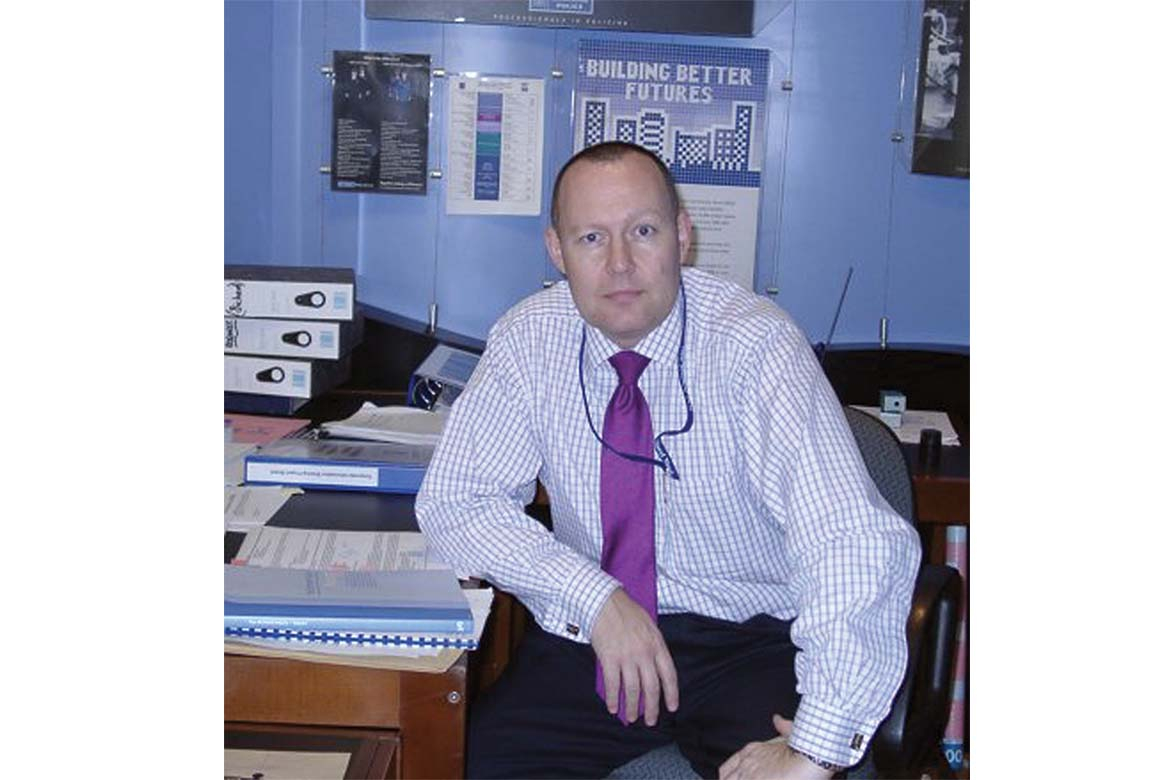Q&A – Studying for a Professional Doctorate
Detective Chief Superintendent Michael McDonagh is in the final stages of a professional doctorate at London Metropolitan University. Dr Alison Wakefield from the University of Portsmouth interviewed him about the benefits and challenges of studying at this level while maintaining family life and a demanding career.
What motivated you to undertake a professional doctorate?
In 2008, I completed a masters degree in business management and thoroughly enjoyed the experience. Having finished my studies, I missed the process of researching and reading, data analysis and constructing essays. I looked around for a further course to provide a fresh challenge that was equally stimulating.
Why did you opt for a professional doctorate over a PhD programme?
Having found several courses that seemed to meet my requirements, I spoke to several past and present students about these. I settled on a professional doctorate based in London because it provided a robust framework of attendance, strong supervision during the research phase and was local.
What was your research about?
Counter terrorism stop and search legislation and the application of those laws. I am the National Senior User on Counter Terrorism Stop and Search, responsible for Government, ACPO and MPS support to the Stop and Search project. It seemed logical to formulate my research around an aspect of policing, society and community that I had access to, and national and international CT legislation and law has always been an interest of mine, particularly as I am the commanding officer of a CT Protective Security command.
In what ways has studying for the doctorate impacted on your professional work?
The research has provided me with both the knowledge and practical research/analysis skills to translate academic and legal material into a viable product that I believe will make a real difference to policing and our communities.
How did you find studying alongside fellow students from a range of criminal justice and security backgrounds?
An absolute pleasure: the different viewpoints, organisational and cultural procedures made for a thoughtful and lively environment when discussing controversial topics such as pre-charge detention or no grounds stopping and searching.
How did you balance your studies with your very demanding job as well as your home life while studying for a doctorate?
Good time management and good family support. Alongside the challenging demands of my position, I have two young children who equally demand my time. I considered this long and hard and decided to forego a second attempt at the Police National Assessment Centre (Commander/ACC selection) as I could not have it all. Looking back I feel the extra work, long hours and reading headaches have been worth it.
How do you think having a doctorate will impact on your future career?
I am not sure that current police leaders value external qualifications as highly as one would expect. As an officer who is nearing the end of a wonderful and enjoyable career, I note that the outside world appear to value academic achievement and continuing professional development in a much more enlightened and rewarding manner.
How will you promote your research findings?
Three fold. Within the policing environment, I intend to submit my findings via the Deputy Commissioner’s Office in the Metropolitan Police Service (the Deputy is the National ACPO lead for Stop and Search). Secondly, I would like to publish my findings in an appropriate academic forum so that all parties who utilise stop and search tactics may benefit from my research. Lastly, I intend to volunteer to speak at various forums to share my findings.
What would be your advice to others thinking about taking their education to this level?
In my view they need to consider the following:
- Is the time right for studying within your career and promotion timetable?
- Is the course right for you, your family and your aspirations?
- Financially, can you maintain the burden? Fees do go up and most forces no longer have bursaries/funding.
- Speak to past and present students. Choose carefully. In the case of a professional doctorate, 4+ years is a very long time to engage in anything.
ABOUT PROFESSIONAL DOCTORATE PROGRAMMES
Professional doctorate programmes are becoming an increasingly popular form of advanced study alternative to a PhD. They are offered part-time, should relate to the student’s area of work and take 4+ years to complete. The first two years comprise a series of assessed modules, taught in short blocks, and the remaining period is devoted to a supervised 40,000 to 50,000 word project of the student’s own design. Applicants mostly have a masters degree.
Two British universities have well-established professional doctorate programmes in the criminal justice/security field: London Metropolitan University (Department of Criminology) and the University of Portsmouth (Institute of Criminal Justice Studies).
Dr Alison Wakefield
Course Leader, BSc
Risk & Security Management
Institute of Criminal Justice Studies
University of Portsmouth

